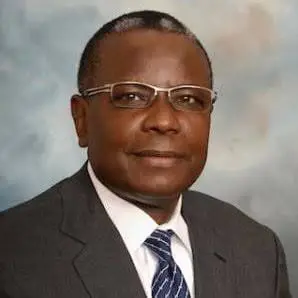
culled from VANGUARD of August 8, 2024. https://www.vanguardngr.com/2024/08/is-professor-jibrin-ibrahims-assessment-of-successive-nigerian-presidents-since-1999-correct-you-decide/
Professor Jibrin Ibrahim, in his recent interview with Arise News TV, said that each successive Nigerian President since 1999 is getting worse in delivering the “universal dividend” of democratic governance to the citizens. My initial reaction to that claim was that the increasing impatience of Nigerians concerning what democracy should accrue is increasingly getting worse, and perhaps misunderstood. Not sure whether my reaction was the case, I decided to explore what the universal dividend means concerning American democracy and provide a context to assess Professor Jibrin Ibrahim’s statement.
Since American democracy is arguably the gold standard of democracy in contemporary times, let’s take a tour of how well it has delivered the “universal dividend” of democratic governance to its citizens.
To begin, American democracy is generally considered to have started with the adoption of the U.S. Constitution, ratified on June 21, 1788, when New Hampshire became the ninth state to ratify it, making it the law of the land. The Constitution officially went into effect on March 4, 1789.
As of 2024, American democracy is 235 years old if we count from 1789. However, some might argue that it began with the Declaration of Independence in 1776, which would make it 248 years old.
With over 200 years of history, let us examine whether American democracy has delivered the “universal dividend” of democratic governance – broadly understood as the benefits democracy is supposed to provide, such as protection of individual rights, equal representation, economic opportunity, and political stability.
The key dimensions I am going to consider are as follows:
In all, American democracy has delivered many of the benefits associated with democratic governance, such as protecting individual rights, fostering economic development, and ensuring political stability. However, it has also faced significant challenges and shortcomings, particularly in ensuring equal representation and economic equality. The system has evolved over time to address many of these issues, but the work of delivering the “universal dividend” of democracy is ongoing.
The effectiveness of American democracy in delivering these dividends is a mixed record, with notable successes and significant areas for improvement. The future of its success will likely depend on how well it adapts to new challenges and continues to strive toward the ideals of equality, justice, and representation for all citizens.
Now, let’s briefly bring these arguments to the context of Nigeria, in particular, to assess the statement by the Professor. His assertion was each successive Nigerian President since 1999 is getting worse in delivering the “universal dividend” of democratic governance to the citizens. To make this a participatory exercise, let me structure it in the form of survey questions using the dimensions I outlined in the case of the United States.
Here we go, on a scale of 1 being worse and 5 being better, how would you score in general the successive Nigerian Presidents since 1999 concerning the universal dividend of democratic governance in the following dimensions:
Once you have scored each dimension, add the scores across each dimension and give equal weight to each dimension by multiplying by 4. For example, if you scored each dimension as 5, summing across would give 25, and multiplying by 4 would be 100 – an indication that you consider each successive President of Nigeria since 1999 as of today as not doing worse but doing better.
So, given your score, what did you decide: worse or better?
---------------------------------------------------------
*Philip Obazee retired as a managing director from a global asset management company based in Philadelphia, USA, and currently he is the founder and chief executive officer of Polymetrics Americas Research, LLC.
RETURN

Review of “Evolution of Leadership Research by Larry D. Mathis, PhD, DMin “ The book was first brought to my attention by Shawn Mathis, Ph. D...

This article was first published on November 12, 2024, on https://constitutionaldiscourse.com/a-game-for-the-throne-the-nigerian-constitution-and-the-...

Civil Society and Social Movements: The Role of Activism and Radical Politics in Deepening Democracy in AfricaByOtive Igbuzor, PhDFounding Executive D...

Chimaroke Nnamani: Progenitor of Ebeano politics at 64By Paul MumehChimaroke-Nnamani2.jpg 88.87 KBHate or love him, Senator Chimaroke Nnamani; fo...

Background To The Recent Nigerian ElectionsGeneral Obasanjo more than just a "friend" of the AmericansElizabeth Liagin is an independent journalist wh...